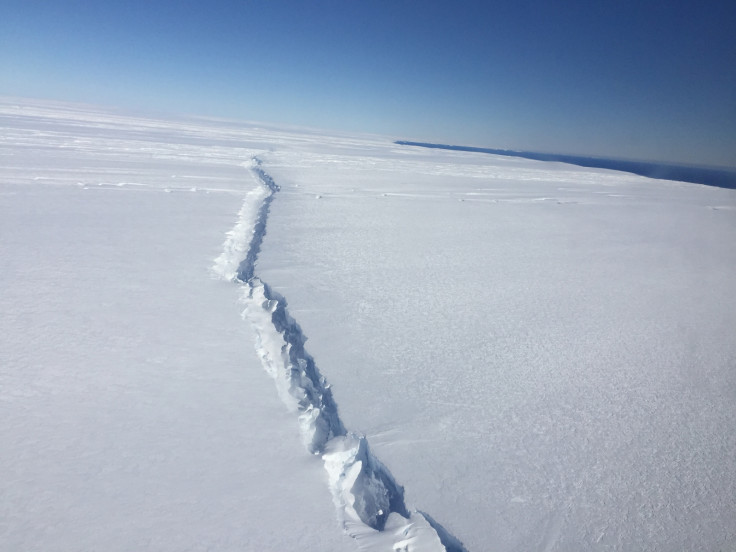Another giant iceberg 4 times the size of Manhattan breaks off from Antarctic glacier
The new iceberg is believed to be unstable and has already broken into smaller chunks as it drifts into the sea.
Antarctica just lost another massive chunk of ice. A massive 100-square-mile icerberg, around 4 times the size of Manhattan, broke off from the Antarctic Pine Island Glacier, considered to be one of the fastest melting Antarctic glaciers.
The Pine Island Glacier, located in Western Antarctica, reportedly loses around 45 billion tons of ice every year. The new iceberg is believed to be unstable and has already broken into smaller chunks as it drifts into the sea, the Washington Post reported.
A satellite image of the calving event, which was confirmed by Nasa scientists, was tweeted out by Stef Lhermitte, a satellite observation specialist at Delft University of Technology in the Netherlands. "It's the fifth large calving event since 2000," Lhermitte told the Washington Post. "This one and 2015, they were much further inland than the previous ones. So there has been a retreat of the calving front, specifically between 2011 and 2015."
Breaking news from Pine Island Glacier, which lost 267km2 of icebergs today, after the internal crack resulted in a large calving event 1/n pic.twitter.com/sLwGTyNTfC
— Stef Lhermitte (@StefLhermitte) September 23, 2017
Yesterday's (24/9) #sentinel1 image shows the Pine Island Glacier calving into multiple icebergs in more spatial detail (IW mode resolution) pic.twitter.com/5eF2AQOhEK
— Stef Lhermitte (@StefLhermitte) September 25, 2017
According to Christopher A Shuman, a research scientist within the Cryospheric Sciences Laboratory at Nasa Goddard Space Flight Center, the accelerated rate at which Antactica is losing ice could be due to various rifts observed at the centre of the Pine Island Glacier, likely caused by warm ocean water coming into contact with the base of the glacier.
"It isn't the size of the bergs that are the main issue," Shuman told Gizmodo. "It is the overall progressive retreat of the ice front with calving losses in 2013, 2015, and 2017, which is pretty rapid retreat for any very large glacier especially one this far south in Antarctica. With the first big loss in 2001, this is not a good sign for sure."
Comparison of the 2015 & 2017 calving events at Pine Island Glacier shows the calving front is almost at exactly the same location 6/n pic.twitter.com/rwTXjhZAQD
— Stef Lhermitte (@StefLhermitte) September 23, 2017
Although the new berg isn't as big as the Larsen C icerberg, which broke off the Antarctic Peninsula earlier this year, the recent substantial loss of ice is still a cause for concern, in terms of sea level rising. "This is not as large a loss as in 2013 but it is a further retreat from what was a pretty stable ice front in at the beginning of this century," Shuman added.
"We are very worried about what might happen to Pine Island glacier in relation to sea level rise," Lhermitte said

© Copyright IBTimes 2025. All rights reserved.






















